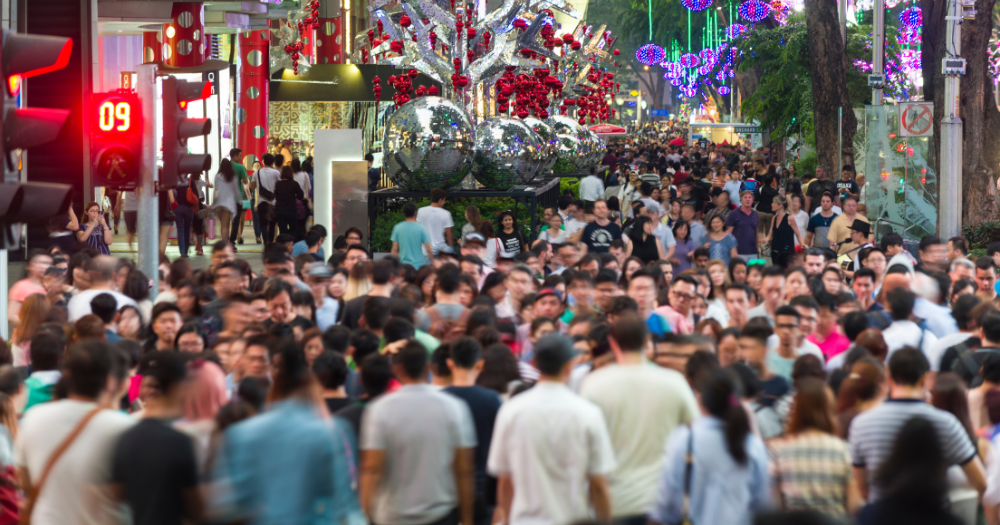
Singapore's total population reached a historical high of 5.92 million as at June 2023, a 5 per cent increase from June 2022.
The country's latest population updates and trends were published by the National Population and Talent Division (NPTD) on Sep. 29 in its annual "Population in Brief" report.
Citizens and PRs returned after pandemic
Of the 5.92 million people currently living and working in Singapore, 3.61 million are Singapore citizens, 1.77 million are non-residents, and 0.54 million are PRs.
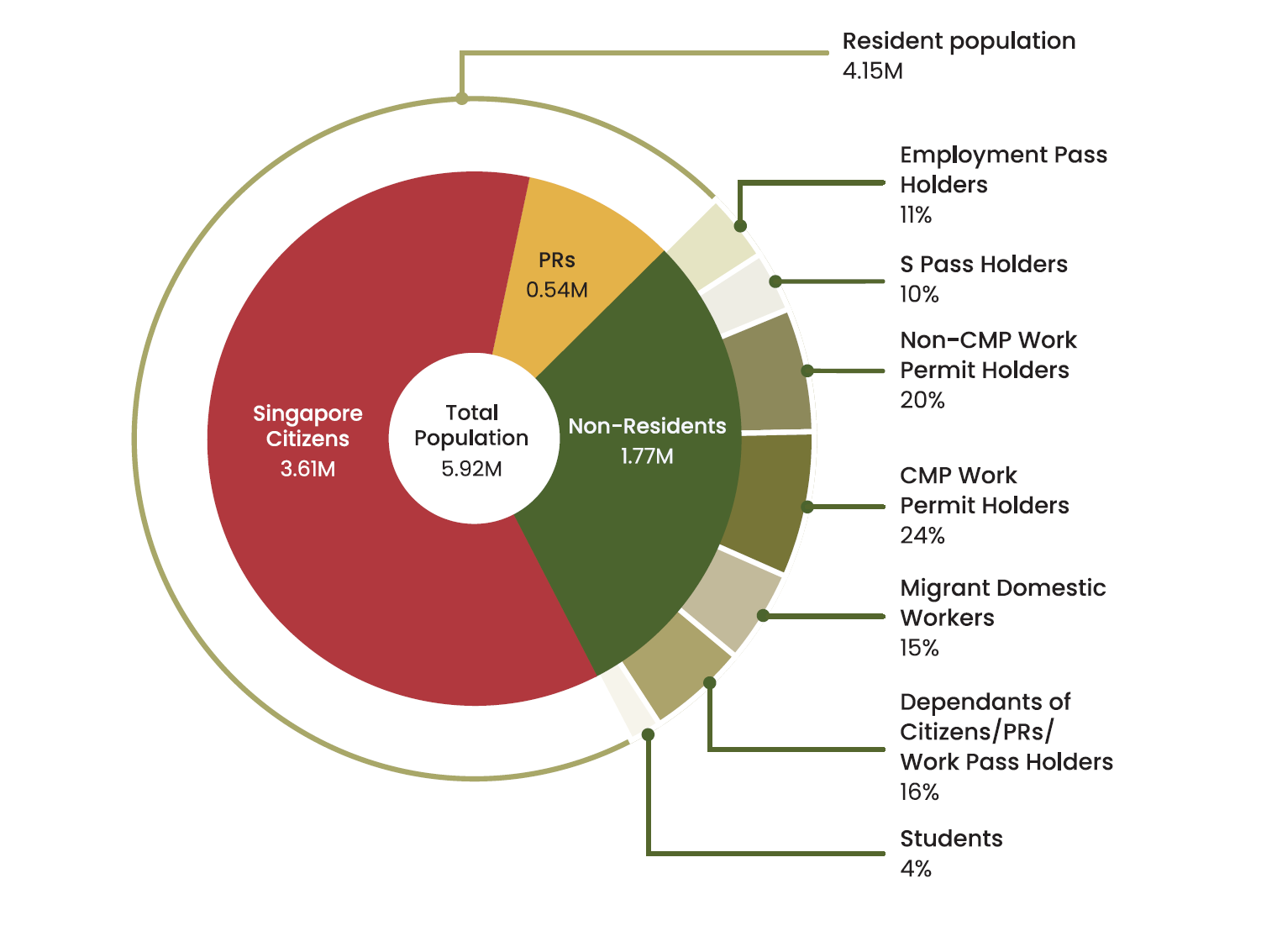 Singapore population based on June 2023 figures. Image via National Population and Talent Division.
Singapore population based on June 2023 figures. Image via National Population and Talent Division.
Between June 2022 and June 2023, the citizen population increased from 3.55 million to 3.61 million — a 1.6 per cent increase.
In the same period, the PR population increased from 0.52 million to 0.54 million — a 3.7 per cent increase.
"With the easing of travel restrictions related to COVID-19, more citizens and PRs living overseas returned to Singapore, and this was the largest contributing factor to the increases in the citizen and PR populations," NPTD explained.
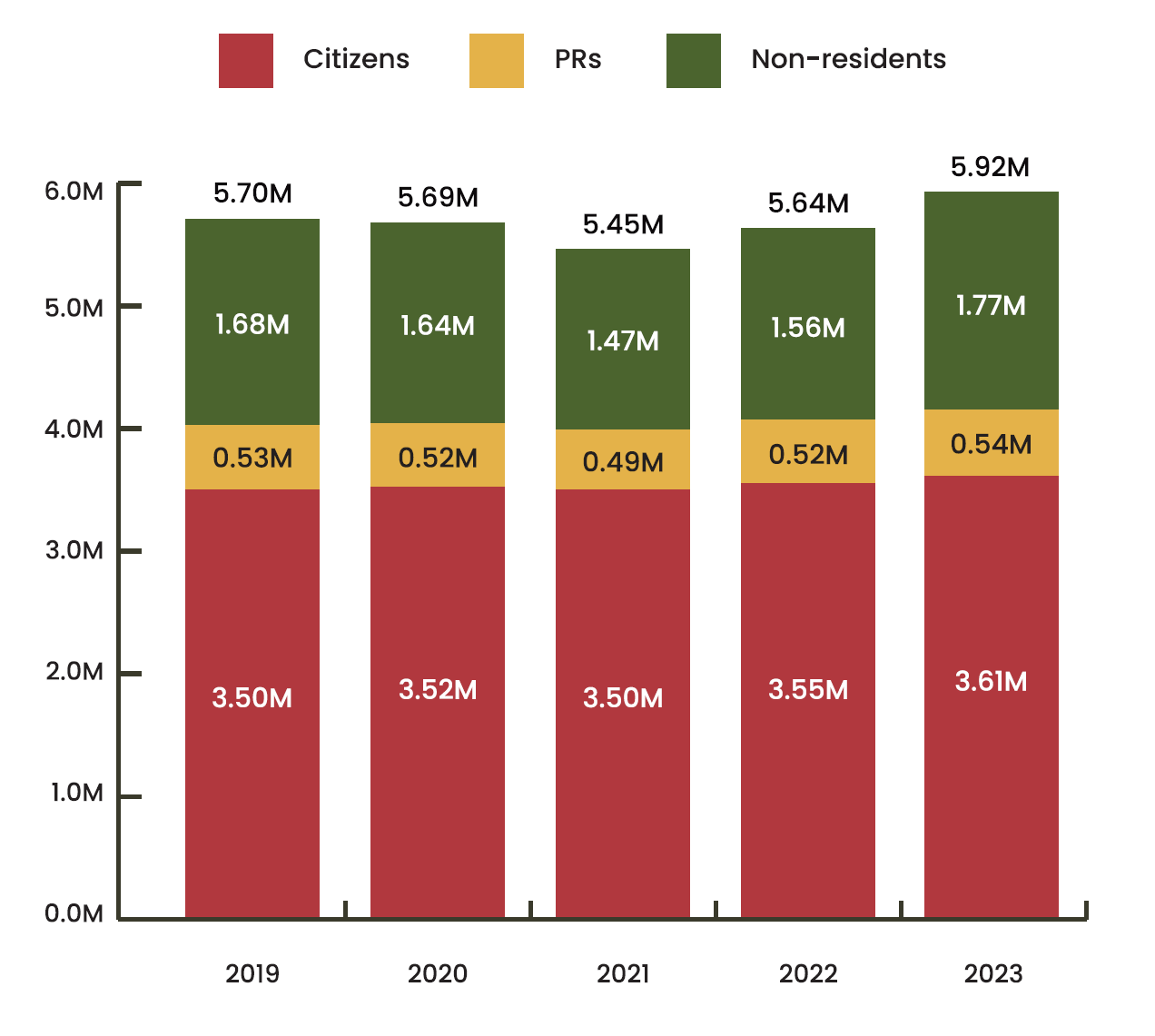 Image via National Population and Talent Division.
Image via National Population and Talent Division.
Additionally, NPTD stated that the average total population growth rate over the past five years was comparable to the preceding five-year period, taking into account the pandemic-driven decline in total population in 2020 and 2021.
The total population recorded as at June 2023 is the highest in Singapore's history, based on available data.
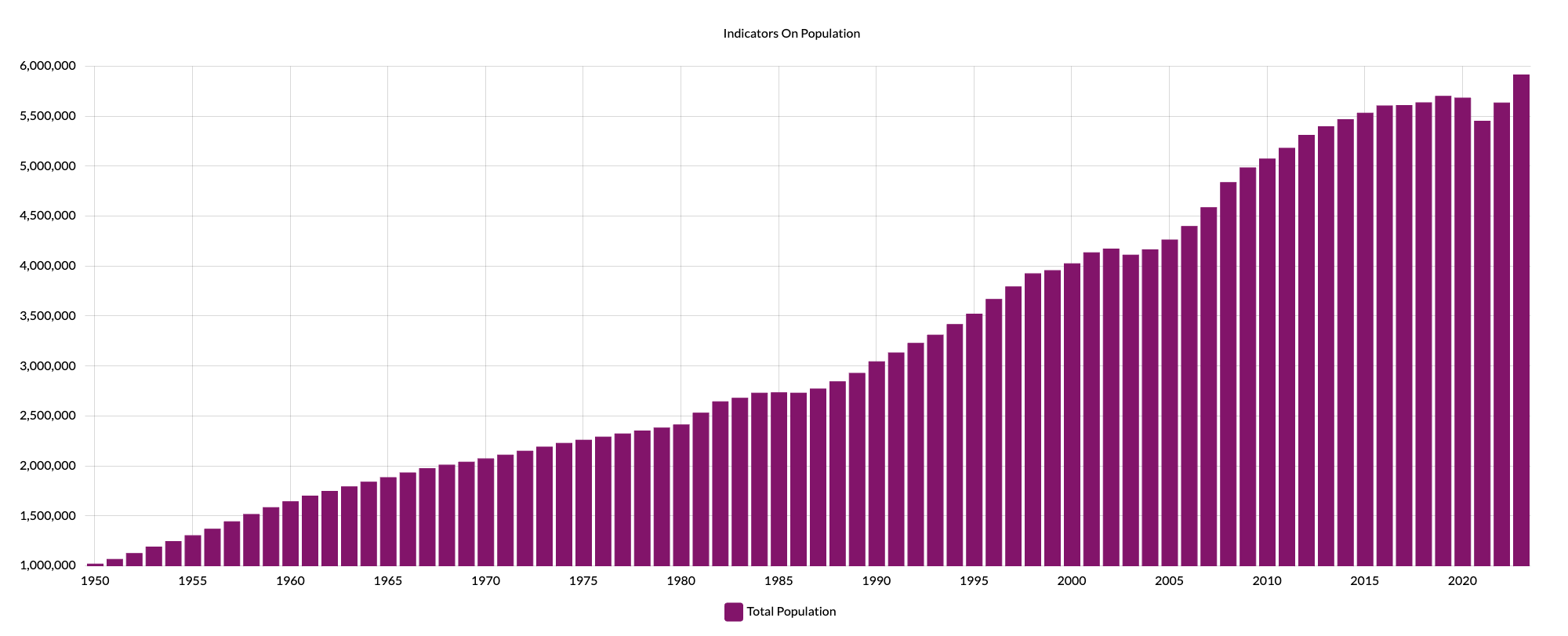 Chart via Department of Statistics Singapore.
Chart via Department of Statistics Singapore.
More work pass holders to make up for pandemic delays
Meanwhile, the non-resident population increased from 1.56 million to 1.77 million, which amounts to a 13.1 percent increase between June 2022 and June 2023.
The increase was mainly a result of "foreign employment growth in Singapore", NPTD commented.
It added that the increase was seen across all pass types, and the largest increase came from the work permit holders in the construction, marine shipyard, and process sectors.
This is due to contractors hiring more workers to "catch up on projects that were delayed by Covid-19".
More older folks, fewer younger ones
Among the citizen population, the number of individuals aged 65 years and above is rising, and at a faster pace compared to the last decade.
According to the NPTD report, large cohorts of "baby boomers" (those born from 1946 to 1964) have begun entering the post-65 years old age range.
In 2013, the proportion of citizens aged 65 and above was 11.7 per cent.
In 2023, the proportion stands at 19.1 per cent.
On the other hand, the proportion of citizens aged 20 to 64 was 64.9 per cent in 2013.
In 2023, the proportion decreased to 61 per cent.
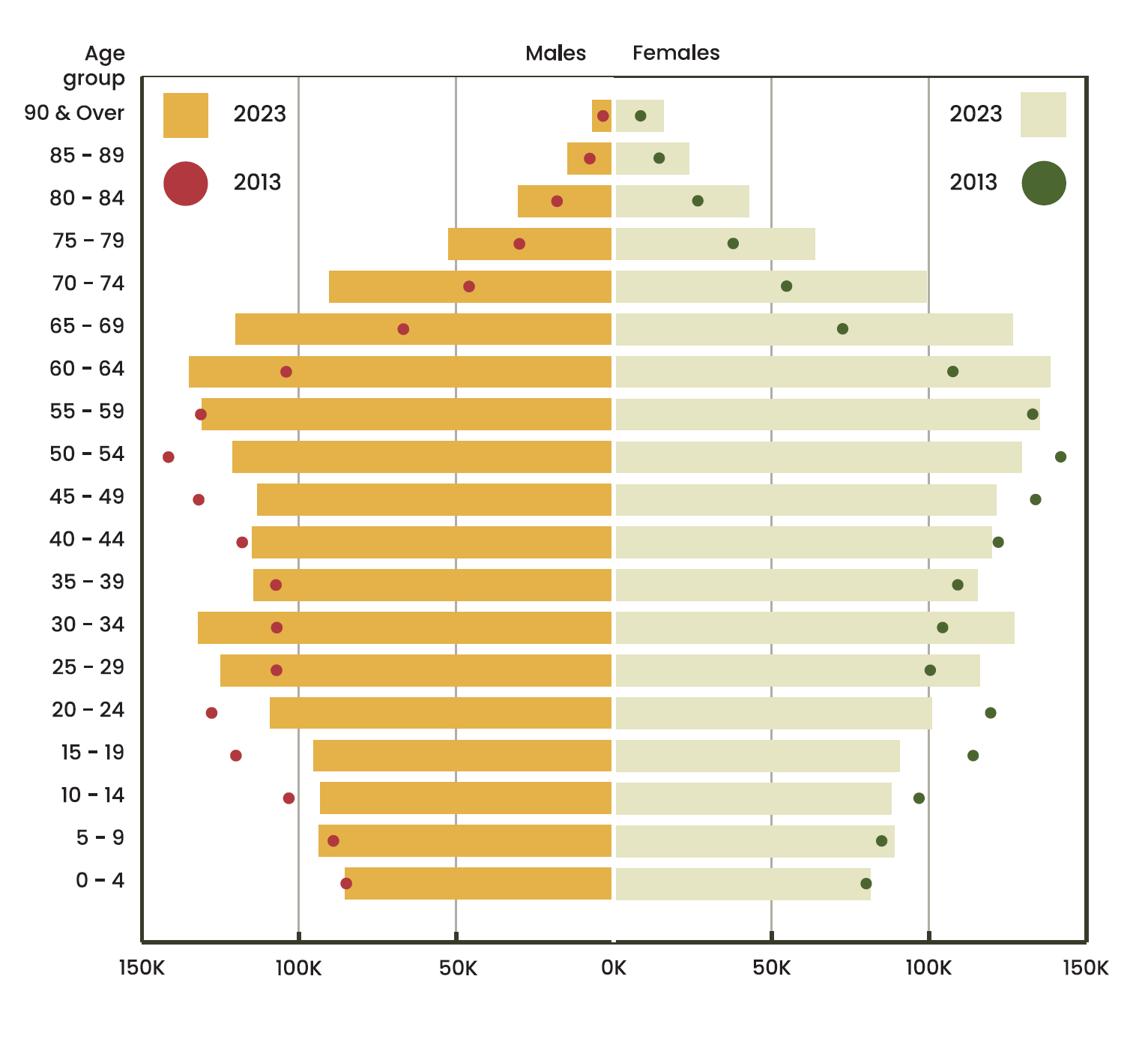 Image via National Population and Talent Division.
Image via National Population and Talent Division.
The number of citizens aged 80 and above has also increased by about 70 per cent between 2013 and 2023, from 80,000 to 136,000.
As of June 2023, the median age of the citizen population is 43 years old.
There was 4 per cent fewer citizen births in 2022 (30,429) than in 2021 (31,713).
The resident total fertility rate (TFR) reached a historic low of 1.04 in 2022.
"The decline (in TFR) in 2022 coincided with the year of the Tiger in the Lunar calendar, which is generally associated with lower births among the Chinese," NTPD wrote.
Overall, the trend of a declining proportion of citizens aged between 20 to 64 and an increasing proportion of citizens aged 65 and above is projected to continue through to 2030, provided "certain demographic assumptions prevail over the stated period", NTPD reported.
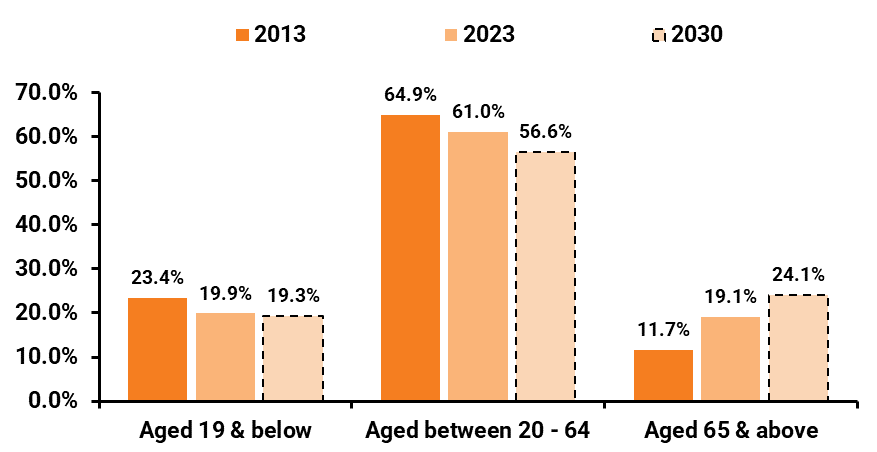 Image via National Population and Talent Division.
Image via National Population and Talent Division.
Pace of immigration 'measured and stable'
In 2022, 23,082 individuals were granted citizenship and 34,493 individuals were granted PR.
This amounted to a slight increase from past years, owing to the fact that the pandemic delayed the completion of in-person processes for "a number of approved applicants" in 2020 and 2021.
These applicants completed the relevant processes in 2022, adding to the higher numbers observed.
However, the pace of immigration remains "measured and stable".
"Immigration helps to moderate the impact of ageing and low birth rates on our citizen population, and keeps it from shrinking over the longer term," NPTD noted in the report.
"Singapore takes in a carefully controlled number of PRs and new citizens each year," NPTD added.
'Record-high' citizen marriages
The number of citizen marriages reached a "record-high" in 2022.
There were 24,767 citizen marriages in 2022.
Comparatively, there were 23,433 citizen marriages in 2021, which is 4 per cent less.
NPTD surmised that the increase in citizen marriages might be due to the resumption of marriage plans which were delayed the Covid-19 pandemic.
Despite the sustained increase, NTPD noted that the annual average number of citizen marriages between 2018 and 2022 remained lower than the average between 2013 to 2017.
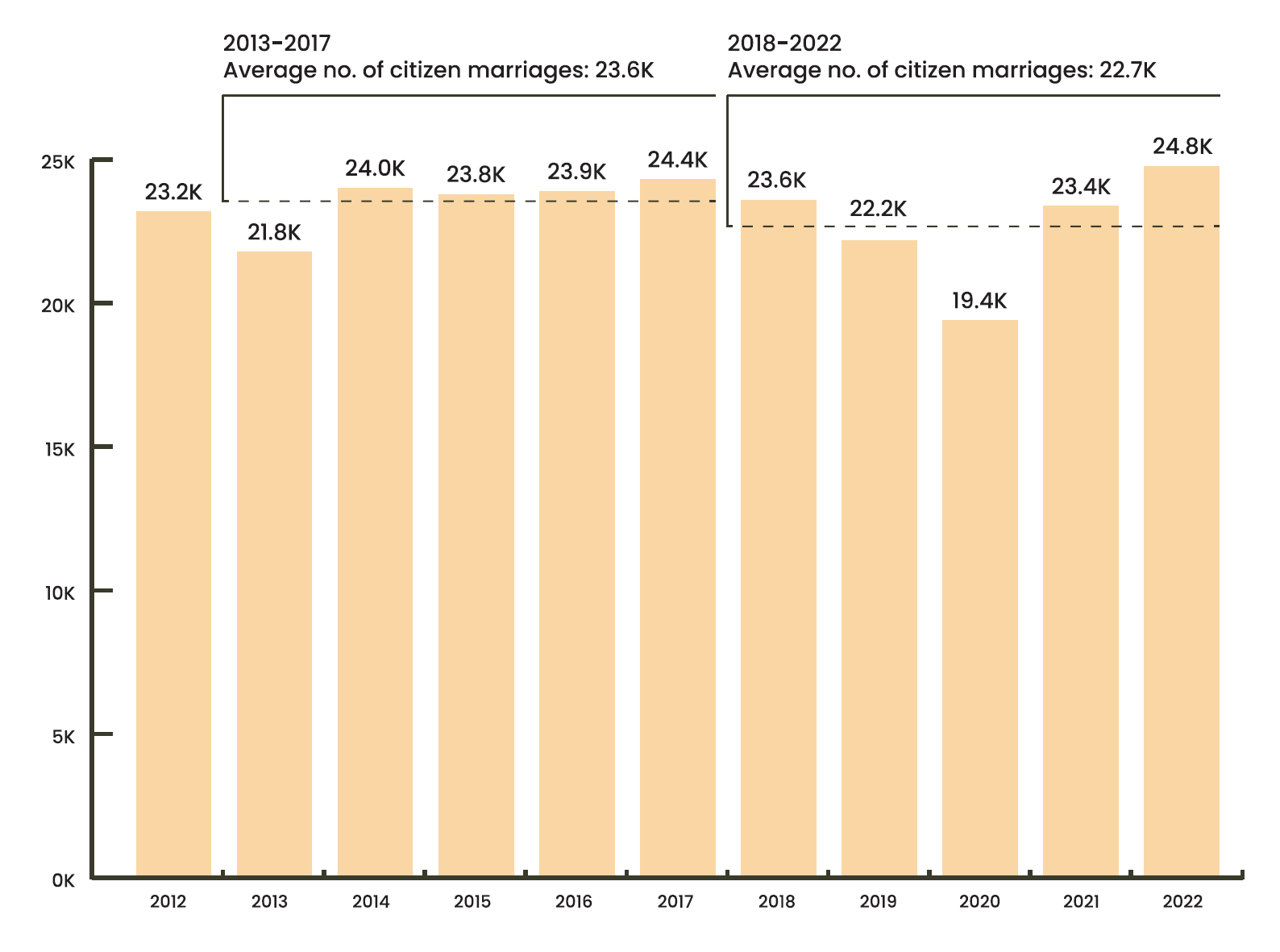 Image via National Population and Talent Division.
Image via National Population and Talent Division.
Population facts and figures from past years
This article powered by Airalo's 10GB e-SIMs allows us to stay connected with our audience 24/7.
Top image via Canva
If you like what you read, follow us on Facebook, Instagram, Twitter and Telegram to get the latest updates.

